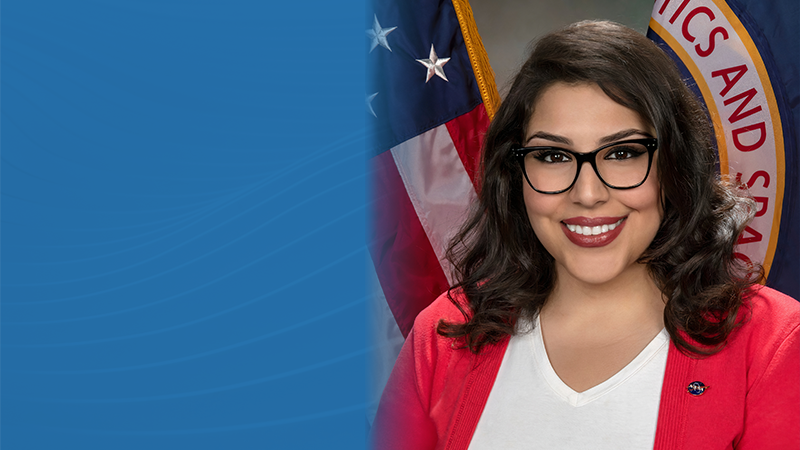To NASA and Beyond: A UCLA Engineering Online Master Alumna’s Journey

Courtesy of NASA
Growing up, Shideh Naderi M.S. ’19 dreamed of becoming an astronaut. Now as a NASA engineer who has led the development of a device to improve future NASA exploration missions, Naderi has made major strides in achieving that goal.
Born and raised in Iran, Naderi showed an early interest in math and engineering, pursuing both while in high school.
“Before entering sophomore year of high school in Iran, you get to decide what career path you’d like to pursue after graduation,” Naderi said. “Engineering was something I was very interested in, in terms of problem-solving, being decent at math, designing and building things and working as an engineer guaranteed a comfortable life, financially.”
Following her high school graduation, Naderi set out on her own and moved to the United States to pursue her college degree. The many renowned universities and exciting job opportunities present in the U.S. were a significant draw for Naderi and her parents, who joined her in California a few years after her move.
Naderi started her college education at MiraCosta Community College, in Oceanside, California and transferred to San Diego State University. In 2016, she graduated with a bachelor’s degree in electrical engineering with a minor in computer science.
Determined to work toward her dream of traveling to space, Naderi started her career at NASA through its Pathways Internship, a program that prepares college students for a career at the organization. Stationed at the space agency’s Armstrong Flight Research Center at Edwards Air Force Base in California, Naderi worked at its research and development division — first in software engineering and later in augmented reality.
“Obtaining a master’s in engineering while working full time as an engineer is very exhausting but having a good support team can help immensely,” Shideh Naderi said.
After completing her internship and spending two years as a full-time NASA electronics and software engineer, Naderi decided she wanted to further her education by pursuing a master’s degree in electrical engineering. She chose UCLA’s Master of Science in Engineering Online (MSOL) program for its flexibility around her work schedule and its top-notch curriculum.
For the past seven years, the UCLA program has consistently been ranked in the top two online graduate engineering programs by the U.S. News and World Report.
“The support that I received from the faculty, and especially student advisor Alisa Janesajawan, made my experience a lot more enjoyable,” Naderi said. “Obtaining a master’s in engineering while working full time as an engineer is very exhausting but having a good support team can help immensely.”
Having worked at NASA for more than six years, Naderi has been a part of numerous projects. In 2020, Naderi became the principal investigator and project manager for the development of a new type of cryogenic coupler, which is a device that enables transferring of cryogenic fluid or gasses between two tanks and is used for space applications.
Up until recently, dust and particles would get stuck in the intricate mechanics of a coupler, compromising its ability to function properly. Over the past two years, Naderi and her team have worked to develop a coupler that avoids this problem altogether. Naderi said that, as opposed to traditional mechanical couplers, this new design uses dust-tolerant passive magnets to connect and disconnect the coupler halves.
She is also part of the team that built X-57 Maxwell, a small experimental aircraft using technology to reduce fuel use, emissions and noise.
“I never thought I’d actually be able to work for NASA so it’s definitely a dream come true. I’ve been loving it so far,” Naderi said. “I’m able to wear a lot of hats and do a bunch of different projects that require different skill sets.”
The relationships and support Naderi gained while working on her master’s through the MSOL program were invaluable to her and pushed her to achieve her goals while juggling the responsibilities of her full-time job. Naderi said she believes that success comes from hard work and setting high professional goals for oneself.
Naderi continues to strive for advancement within the government agency, but her ultimate goal remains the same: to follow her childhood dream of becoming an astronaut.
The NASA astronaut selection process is highly competitive; the agency is looking for people who have excelled in their careers and demonstrated passion for the space program. But Naderi said she believes that she’s up to the challenge.
“I wanted to explore beyond what was available to me,” she said. “Exploring often leads to finding, but you won’t be able to explore if you stay in one place. Being an astronaut means you’re ready to serve humanity at the frontier of exploration.”
Riley de Jong contributed to this story.
